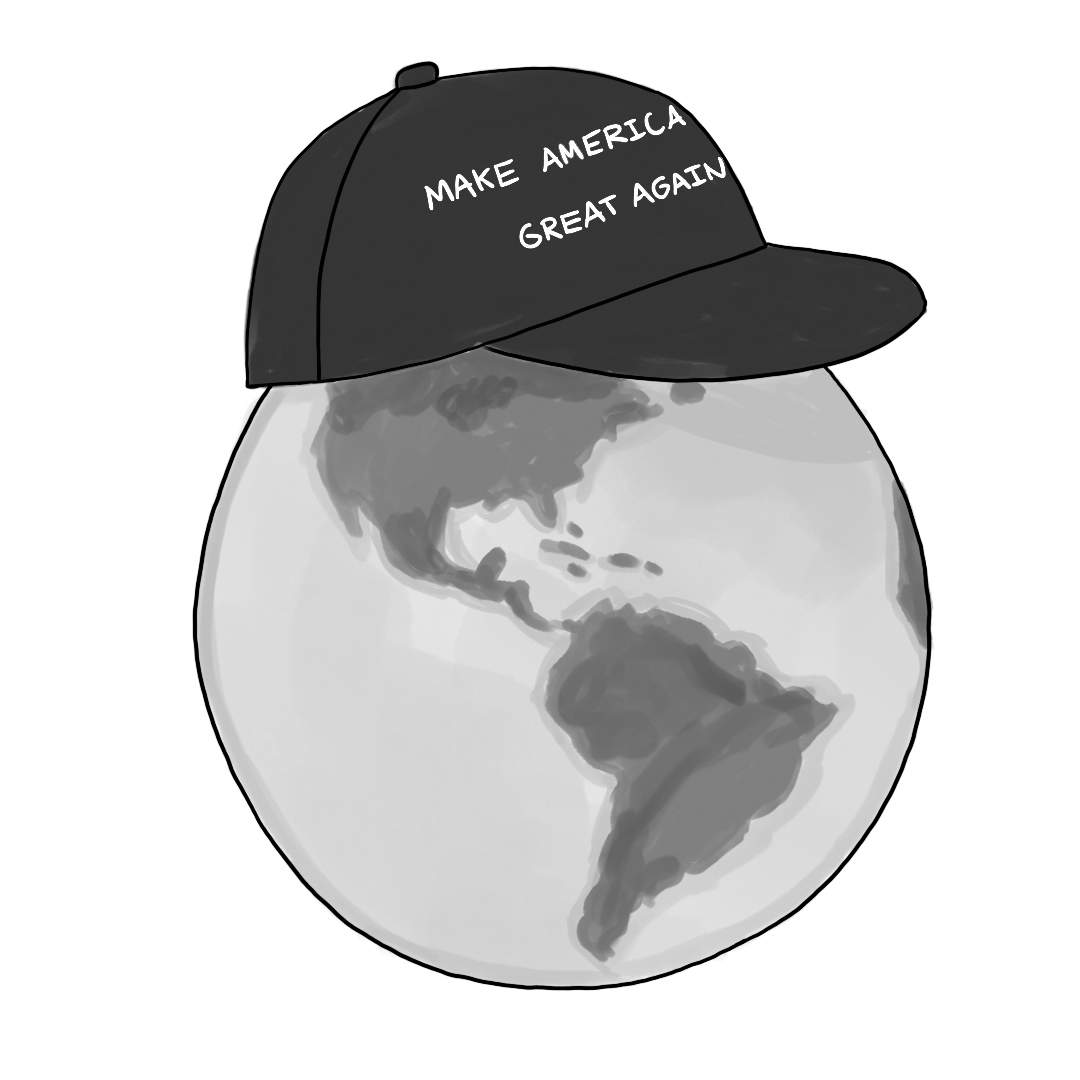“Sovereignty” was the first word of President Trump’s inauguration speech that piqued interest. The fact that he addressed sovereignty early in his speech reminded some Americans of his remarks to the United Nations General Assembly in 2017, where he mentioned sovereignty 21 times and “interests” 10, mainly defending American interests. Sovereignty has long been at the forefront of Trump’s view on world politics.
One of Trump’s most commonly referenced remarks that embodies his “America First” approach is his aspirations to control the Panama Canal, which relates to similar statements about aspirations to acquire Greenland, especially by his son. Interest in the Panama Canal is partially due to US frustrations about slowed shipping due to a severe drought and allegedly unreasonable charges that limit US opportunistic control. The reasoning behind his widely criticized belief that American control will improve all underlying issues is complex. His confidence in America reflects his attempts to revise the challenges of globalization into a simple set of policies. Most importantly, it marks an intentional separation from the international community.
With news outlets listing out example after example of Trump’s belief in the exceptional qualities of America, US exceptionalism isn’t a new concept. It was present in Bush and Clinton’s presidencies, but seems to have taken on a new approach during Trump’s first presidency. The 2018 withdrawal from the UN Human Rights Council was an attempt to “reestablish the Council’s legitimacy,” implying that it wouldn’t be taken seriously without the US. Criticizing the lack
of intervention towards situations and certain countries in the Council, the US lashed out against any criticisms from the UN against its border policies.
A similar pattern of the US and its difficulties with mismatched values among the international community is displayed in the creation of the International Criminal Court. In 2018, National Security Adviser John Bolton heavily criticized the court, especially towards the prosecutor who requested an investigation of Afghanistan, asserting that “no committee of foreign nations will tell us how to govern ourselves and defend our freedoms.”
The US has had many more examples of historical exceptionalism beliefs, which increased during Trump’s early presidency. For example, Trump gave his full support to Saudi Arabia for the murder of Washington Post columnist Jamal Khashoggi, believing that a stable price of oil would benefit Americans more than human rights criticisms. Nations do this all the time, but it’s interesting to note that his administration left the Human Rights Council because they criticized the Council for allowing the membership of many human-rights-abusing countries, including Saudi Arabia.
In their academic article analyzing the divide between the international Human Rights community and the US, Kurt Mills and Rodger A. Payne refer to many of Trump’s initiatives as “constitutive exclusionary” transgressions, where “states attempt to draw new boundaries between insiders and outsiders, believing their behavior should grant them insider status.” Withdrawing from the UNHCR attempts to establish the United States as the “supreme leader” of human rights while casting the rest of the international community in the shadows. Similarly, Trump’s administration threatens ICC personnel who investigate US citizens for war crimes. These kinds of transgressions showcase how the US is willing to redefine human rights around America. It sees an American understanding of human rights as morally superior to the international community, which could change the barriers between “civil” countries and human-rights abusing countries.
Perhaps the most direct example of this was The Commission on Unalienable Rights, created in May 2019 to assist the Secretary of State on international human rights issues. It emphasized that fundamental human rights and religious freedom had been lost in the global community, and its committee praised America’s foundational understanding of human rights through its Judeo-Christian background.
Trump’s emphasis on the religious values that America was founded on may be in part to counter the values that drive the force behind globalization. A paper on the psychological implications of globalization during the early 2002s by Jeffrey Jensen Arnett states that in the culture of the international community, “religious issues are ignored in favor of consumerism, entertainment, and the pursuit of individual enjoyment.” He adds that these values “fail to provide the structure and meaning they need.” In the early 2000s, not many people deliberately joined these self-selected groups as a way to go against the global culture. However, as various technologies advance globally united ideas, Trump appeals to people confused by these not-values in a rapidly changing world.
Ultimately, the United States has realized that many people no longer associate globalization with Americanization. This relates well back to the Panama Canal, which Trump attempts to redefine a new boundary between the United States and its right to protect the Canal, painting itself as a strong nation that wants to maintain its standing against the forces of China and economic charges that infringe on its sovereignty. However, US actions could place them among outsider states in the international community, and they might see America among the states who attempt to evade regulative norms. Without being backed by strong rhetorical support for democracy and attempts to evaluate wrongdoings according to the norm, the United States could undermine its own interests whilst trying to live out its fantasy of spreading American sovereignty and ultimately become excluded from the international community.































